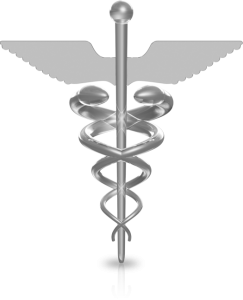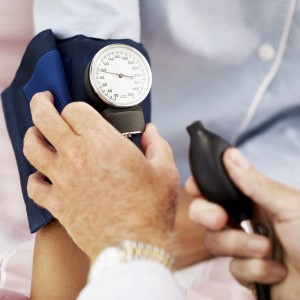 I recently got a letter in the mail from my insurance company inviting me to find out how healthy I am. It was the kind of mail that I normally would toss right into recycling until I realized it might make a good blog post. I decided to read further.
I recently got a letter in the mail from my insurance company inviting me to find out how healthy I am. It was the kind of mail that I normally would toss right into recycling until I realized it might make a good blog post. I decided to read further.
The insurance company has set up new online profile for its carriers where we can take a free, confidential survey that is supposed to identify risky or life threatening behaviors related to an individual’s lifestyle or medical history. As it turns out, I just requested from each of the women in my family their knowledge of our family’s medical history because I realized every time I go to the doctor (which is extremely rare) I have to fill out the medical history portion of some form and I am not well educated on what has or hasn’t happened in my family. If you’re not sure if there is a history of cancer or diabetes or high blood pressure or a host of others in your family, start asking.
Knowing I finally have some medical background on my family, which is thankfully pretty clean, I decided to take the survey and find out its analysis of my health. The program focuses on risk factors that you can control or change to improve your health and the insurance company makes it clear that the assessment is just one tool for evaluating an individual’s current health status and risk factors.It only took about 15 minutes to answer a series of questions in categories about cholesterol, blood pressure, family medical history, emotional health (to determine levels of stress and depressions), physical health, weight management, exercise habits, alcohol and nicotine habits, work environment, and safety. I recently had my yearly exam and every time my blood pressure is taken and the nurse repeats it to me I ask “is that good?” The answer has always been yes and I think because of this, I have never bothered to record or remember the actual numbers. So unfortunately, I could provide no helpful information regarding my own cholesterol or blood pressure. The other questions were all easy enough and relatively generic.
Survey Says…
When I finished the questions, a report was automatically generated and was to make me more aware of potential risks in my life, so that I can take an active role in managing my health to avoid common conditions like heart disease, diabetes, hypertension (high blood pressure), and certain cancers.
For each category of questions, I received an evaluation. My total score of 3 put me in the overall low risk category, but because I couldn’t provide any information about cholesterol or blood pressure I was identified to be at “extreme risk” in cholesterol and “high risk” in blood pressure. Because I smoked a few cigarettes during college and consume what I consider to be normal amounts of alcohol, the survey categorized me as “medium risk” for my alcohol and nicotine habits. Regardless of how I ranked in each category, the survey provided what I thought were helpful facts, suggestions, advice, and resources on their various subjects. I realized I know very little about cholesterol and blood pressure so thought I’d share what I learned.
Cholesterol
Based on the guidelines provided by the National Cholesterol Education Program, HDL cholesterol that is less than 40 mg/dL is low. Low HDL cholesterol places a person at increased risk for heart disease. High HDL results (greater than 60 mg/dL) can actually protect you. The HDL score should be read with the understanding that a higher score is actually better and the ideal score for each individual may be different.
According to the same NCEP guidelines, an LDL level less than 100 mg/dL is considered optimal (the best), and an LDL level less than 130 mg/dL is considered near optimal.
Now that I have some context for the numbers, maybe I’ll get my cholesterol tested. However, I am still not clear about how to control and achieve healthy levels of cholesterol, so I still have some learning to do.
Blood Pressure
Blood pressure is a measurement of the force of blood against the walls of the arteries. Blood pressure readings include two numbers. The first number in the reading is called the systolic blood pressure (the top number of the fraction). It is the force that blood exerts on the artery walls as the heart contracts. The second number in the reading is the diastolic blood pressure (the bottom number of the fraction). It is the force that blood exerts on the artery walls between heartbeats, when the heart is at rest. Blood pressure below 120/80 is normal; I’m pretty sure these are the numbers I heard at my last visit to the doctor, good to go.
Staying Healthy
The report also offered information on the other health categories it evaluated and I thought the report provided good advice for time management, stress management, and it encourages maintaining a healthy balance between work, family, and social life. I was impressed that whoever put the survey and reports together gave equal amount of coverage and information to the various facets of being healthy. The report also covered how to identify stress and depression and provided suggestions for how to cope, treat, and overcome those things. I appreciate that they recognize that stress and depression are legitimate detriments to overall health and would hope the insurance company provides as good of financial coverage as they did information in their health profile report. In addition, the report shared suggestions for healthy eating habits and what immunizations people need depending on their age.
I also learned in the report that my Body Mass Index (BMI) is 19.5. I feel like the last time I had my BMI evaluated was in 5th grade for the President’s phyical fitness test and now that I have the number again, I’m not entirely sure what to do with it.
In the safety category I received an “excellent” rating which I thought was interesting since the only question in the safety category asked how often I wear a seatbelt. Because I answered that I wear my seatbelt 100% of the time, I am considered to be excellent in safety (with ‘very poor’ being the other category).
Although I didn’t learn much about my own personal health that I didn’t already know, I can see how this survey and its report might be eye opening for others. I’m lucky to have a healthy family and hope I can always appreciate what it means to be physically fit, mentally well, and emotionally balanced.
